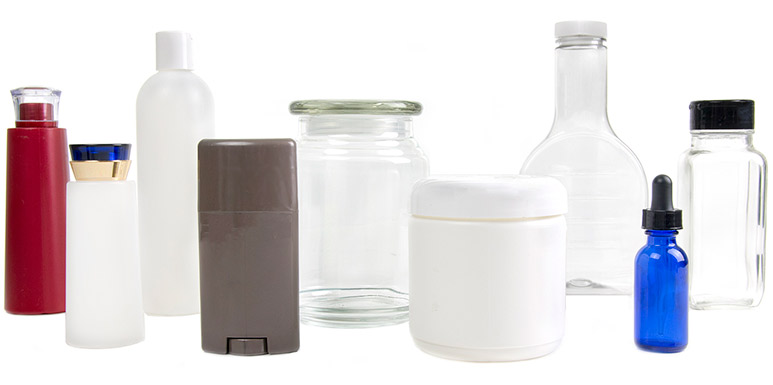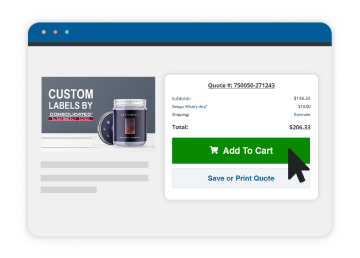
What is a co-packer?
Co-packer is short for ‘contract packer’ or ‘contract packager.’ A co-packer is a type of business that provides manufacturing and packaging services in order to sell products. Through this partnership, an entrepreneur that wishes to sell a product may avoid expensive investments in manufacturing and packaging equipment and labor, while the co-packer either takes a percentage of the entrepreneur’s profits or bills for their services. Using a co-packer is a typical practice for many small and startup companies in a variety of industries, including food, beverage, health, and cosmetic.
Choosing the right co-packer for your product can be a complicated task. We have identified some key positives and negatives when working with co-packers. We hope this helps make your decision easier when searching for one. Here is our breakdown of potential benefits and drawbacks:
| Potential Pros | Potential Cons |
|---|---|
| Reduce startup costs for the food entrepreneur. | Loss of control over product and its manufacture. |
| Predict overhead costs of manufacturing. | At the mercy of the co-packer’s schedule, costs, and method. |
| Reduce lead time in getting the product to the market. | Product must conform to co-packer’s equipment and facility limitations. |
| A co-packer may be able to provide their experiences with similar products. | Co-packer may be producing a competitor’s product. |
| Co-packers usually offer the advantages of buying supplies and ingredients in bulk. | Loss of confidentiality. Formulations, ingredients, and product specifications must be shared with the co-packer (this can be protected, but never assumed). |
| If they have processing lines in place, it can make manufacturing and packaging the product as easy as placing an order. | Disagreements are not easily resolved. Disputes and litigation could tie up ingredients, supplies, and finished product for extended periods of time (and possibly spoiling in that time). |
| Some co-packers have an in-house research and development department. This can produce considerable savings in time and costs. | Co-packers can be expensive. They must recover direct and indirect costs of manufacturing and packaging problems, but they also need to make a profit. |
Co-packers can be an ideal partnership because they share some of the financial burden with the entrepreneur. Many of the potential cons can be avoided by taking caution and making proper preparation when meeting with a potential co-packer. In the end, it is all up you, the entrepreneur, to weigh out these pros and cons and decide which is best for your company. If you do decide to use a co-packer, there are certain things you should keep in mind before making the jump.
Considerations for Selecting a Co-Packer
Looking for a co-packer can seem like a daunting task (especially for first timers) but a little research and planning can go a long way as you consider different options. Below are tips we found that can help make searching for one an easier, smoother process.
- Assess your needs: Before you start looking online or asking around for recommendations, it’s important that you understand your packaging needs. For example, if you don’t have a lot of resources, then a turnkey operation would be your best fit since the co-packer can source your ingredients, package, warehouse, and ship your products. However, if your business manages most of the supply chain and logistics, then it would be a good idea to keep those roles in house and outsource whatever packaging aspects you can’t do to a co-packer. This way you can still maintain a certain amount of control which will lower costs and reduce ‘back-and-forth’ communications with a co-packer allowing your product to get to market faster.
- Look for safety and quality: Cleanliness and organization are critical requirements, but those aren’t the only things you should be looking for. Below are some questions you may want to ask to their head of quality to ensure they’re a right fit for your operations.
- What are your food and employee safety policies and procedures?
- Have there been any food quality or safety issues? If yes, what were they and how did you resolve them?
- Are there HACCP (hazard analysis and critical control points) plans in place?
- Who audits your facilities and how often? What actions were recommended during your last audit?
- What certifications do you have in place (kosher, gluten free, organic, non-GMO, SQF, etc)?
- Trust is a must: Communication is a crucial aspect in any relationship and your co-packer is no different. If your co-packer doesn’t respond back to calls or emails in an appropriate amount of time, or their answers are vague when you do get a hold of them, then they probably won’t meet your needs or expectations. Look for co-packers who are engaged and transparent because at the end of the day, your partnership with a co-packer is one of the most important your business will have.
- Location, location, location: Look for co-packers that are closer to you rather than father away. Long distances can create logistical problems with transportation and warehousing, and having them close by makes it easier for you (or someone from your team) to visit the facility for meetings, inspections, etc. Being close to them isn’t only good for logistical reasons, it can help build trust and improve transparency.
Whatever product you sell, it’s crucial that you have a thorough understanding of your production process before selecting a co-packer. Having that foundation makes it easier to research, interview, and select a co-packer that will help take your business to the next level. Production and packaging play big roles in the success of your business, but they’re not the only ones that matter – custom labels can add the perfect final touch to your product so it’s more marketable to consumers. That’s where we can help! Get started on your custom labels with our online quote tool or by calling us at 1-800-475-2235.
Editor’s Note: This post was originally published in April 2012 and has been updated for accuracy and comprehensiveness.


